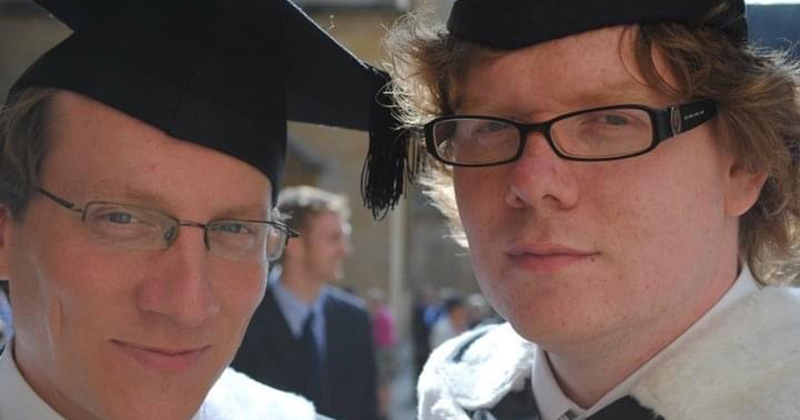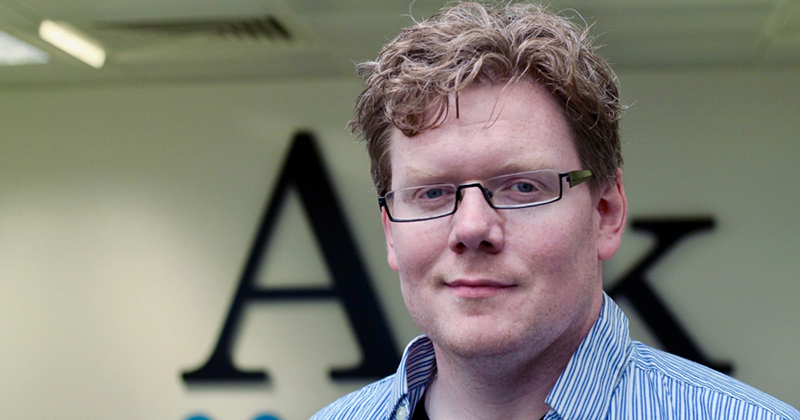John Blake, the new director for fair access and participation at the Office for Students, is heavily steeped in schools policy ̶ but now he’s examining HE provision in FE settings. What does he want to know? He sits down with Jess Staufenberg
If you’re from the schools world, you’ll probably know all about John Blake, the new director for fair access and participation at the Office for Students. And if you’re in FE and watch the schools world with a weather eye, your recent frantic internet searches will likely have told you the basics.
But for many in FE, the man appointed in November to one of the most influential posts in tertiary education will be something of a mystery.
First off, he’s a highly engaging, energetic person, who listens and responds to ideas with genuine enthusiasm.
In terms of his career to date, think of the most influential college groups in FE, and know that Blake has worked for their equivalents among multi-academy trusts.
Having been president at Oxford University Students’ Union, he became a history teacher in a grammar school, took various head of history roles, and joined academically selective sixth form the London Academy of Excellence.
(As a point of interest, some months before he joined LAE, FE Week’s sister paper Schools Week revealed students were being forced out in year 12 for not having ‘C’ grades at AS level. Then-college principal Eddie Playfair, now at the Association of Colleges, confirmed he had been taking in the booted-out students.)
Blake moved on to work for the Harris Federation, a top-results academy trust, before becoming head of education at the right-leaning Policy Exchange think tank, which is where he first became an eduTwitter household name.

Then he moved to director of policy and strategy at the Now Teach charity for career switchers, and also became the first ever head of public affairs for an academy trust, at Ark Schools, giving voice to the academies sector in the corridors of power.
Blake starts off by explaining to me that his centre-left politics did not stop him from sympathising deeply with elements of what Michael Gove was trying to do from 2010.
He may have been a prominent trade union activist and founder of grassroots network Labour Teachers, but “it was clear to me that schools policy wasn’t in a healthy place,” he says.
“I can write you a list as long as your arm about what I disagreed with Michael Gove about, but there was a genuine commitment to […] beginning a really strong dialogue about what the problems were, particularly in curriculum and assessment,” he explains.
That position explains why he became a member of Parents and Teachers for Excellence, a campaign group that favours rigorous testing and curriculum in education, and which has contained politicians’ favoured educators.
(One of its core members, Rachel de Souza, is now the children’s commissioner, and another, Mark Lehain, is now a special advisor to Nadhim Zahawi. So Blake is among old colleagues as he heads up the Office for Students.)
So far, so un-FE, I hear you say. Why is he relevant now?
As a former history teacher, Blake dives enthusiastically into a potted history of the Office for Students to explain. When top-up higher education fees were introduced, so were ‘access agreements’ from 2004 under the Office for Access. Any university or college that wanted to charge the higher fees had to have an access agreement.
Then in 2016, the government wanted to shake up how HE was regulated, bringing various different regulatory bodies (including OfA and the Higher Education Funding Council for England) under one body: the newly created Office for Students. Access and participation plans were also introduced (with fees having tripled in 2012, to £9,000).
Now, however, the DfE wants “greater clarity” in the plans, so Blake is overseeing a “mass variation process” of them, beginning in a couple of weeks.
Providers will need to clearly state what they are doing around access and participation, including school engagement and improvement, and Blake’s team will be considering possible regulatory framework changes.
The access and participation plan itself is a big job for a provider – the OfS supplies only a loose template, says Blake, and the plans “tend to be very thick documents, with a lot of analysis”.

More recently, feedback to the OfS from smaller providers, including in FE, has led Blake to the view that access and participation plans can be a real burden for less well-resourced institutions.
“If our data team rang up FE colleges and said, did you enjoy writing your APP, they will laugh in your face! We know from an independent review of small providers that they found the process demanding, and didn’t have the scale internally to do the analysis.”
So a single regulatory framework, which included both FE and HE providers, has been “great, in that everyone knows what they’re getting […] but I think we now have to do the work to bring the small and specialist providers, including the FE sector, to a place where the quality of their contribution is recognised, but also they can be held accountable in a way that makes sense.”
We mustn’t overwhelm FE with bureaucracy
It will be a largely welcome reassurance for the FE sector, not being lumped in with the HE sector. Blake continues: “We have to work out a way of allowing that contribution to the system without overwhelming [FE] with bureaucracy, so they either give up, or […] give us data that’s unreliable.”
Then Blake says: “I’ve outlined my big priorities for my time here, one of which is improving relationships and partnerships between schools and HE, and FE colleges are a really crucial bridge there, but by definition, they also have less capacity.”
Hmmm. The feedback to the OfS notwithstanding, I do keep thinking that many heavyweight, multi-million-pound college groups have extremely well-oiled bid-writing teams and experienced back office staff who are very familiar with this kind of ‘bureaucracy’.

Meanwhile, some already do significant capacity-building work supporting schools: several colleges leaders, for instance, also run successful academy trusts, and at least one chief executive runs a big group encompassing a university, colleges and schools.
Is Blake possibly underestimating, or over-worrying about, the capacity of some FE providers? He explains it’s about “building the right framework to allow everyone to participate in their strongest capacity”.
Sounds good. So are FE providers invited to an event the OfS will be hosting ‘with schools and HE leaders’ on April 7?
“They would be, but it’s one of those examples… it’s how do we use their time best. Yes they are welcome, but I think we have more examples of schools and university partnerships. There are example there of what’s already working that could be followed up and scaled up.”
This doesn’t quite make sense, because the FE sector has extremely tight partnerships with local universities in many cases, which could be a model to schools of how to do such partnerships. It’s hard to shake the feeling Blake is more focused on schools, mainly because he is so much more experienced in them.
Blake does, of course, make the very fair point that it’s about engaging students earlier than 16 years old. But many learners only start seriously thinking about their future aged 16, and given the high proportion of disadvantaged learners in FE, the sector is perhaps exactly where partnerships with selective universities should be encouraged.
And what about HE for adults? The DfE keeps banging on about lifelong learning, after all.
However, Blake’s great winning quality is quickly reflecting on any assumptions he might be making, and not taking himself as gospel. He acknowledges that his information on FE might not be up to speed.
“I’d be delighted if people emailed me, and said, there are 90 amazing things that are happening [in FE]. It feels to me, we don’t have that depth of knowledge about what those partnerships look like.”

Our other big topic of conversation is, of course, that the DfE is consulting on new minimum eligibility thresholds of two ‘E’s at A-level, or at least a grade 4 in English and maths GCSE, in order for people to access student finance.
This is supposedly so students “aren’t being pushed into higher education before they are ready”, and has prompted the Association of Colleges to warn that the proposal is a terrible idea, not least for adult learners, many of whom don’t arrive with the right suite of GCSEs.
Blake has already defended the consultation elsewhere in the media, and does so again.
“For what it’s worth, I think the government is genuine in its consultation about this,” he says, adding that rather than getting bogged down in the exact detail, it’s about looking at “levels of preparedness” for HE: “I think the challenge is a good one.” He does well at communicating ideas a little more flexibly than the DfE manages to.
We need to understand from the FE sector what they will be looking for from us
As we round up, I do wonder whether the educators formed in the fire of the Gove years, like Blake, haven’t yet switched on completely to the skills and FE focus which has characterised the DfE more recently.
For instance, Blake says FE has “become the repository of all the stuff that isn’t sexy enough,” and worries the country doesn’t often enough tell the “really important story of the kid who didn’t have a great school, got into a really solid FE college, and got really good skills for work, and got a decent job”. But that is arguably the exact narrative that has been picking up speed for some time.
So as HE provision undergoes this shake-up, it would be best not to leave FE out in the cold. To be fair to Blake, he does round up very positively on this note.
“We need to understand from the FE sector what they will be looking for from us. It will never be the system they love – no one loves regulation. But I think we can get closer to the system that allows them to be seen and allows them to contribute.”
Well, FE? Get emailing!









Your thoughts